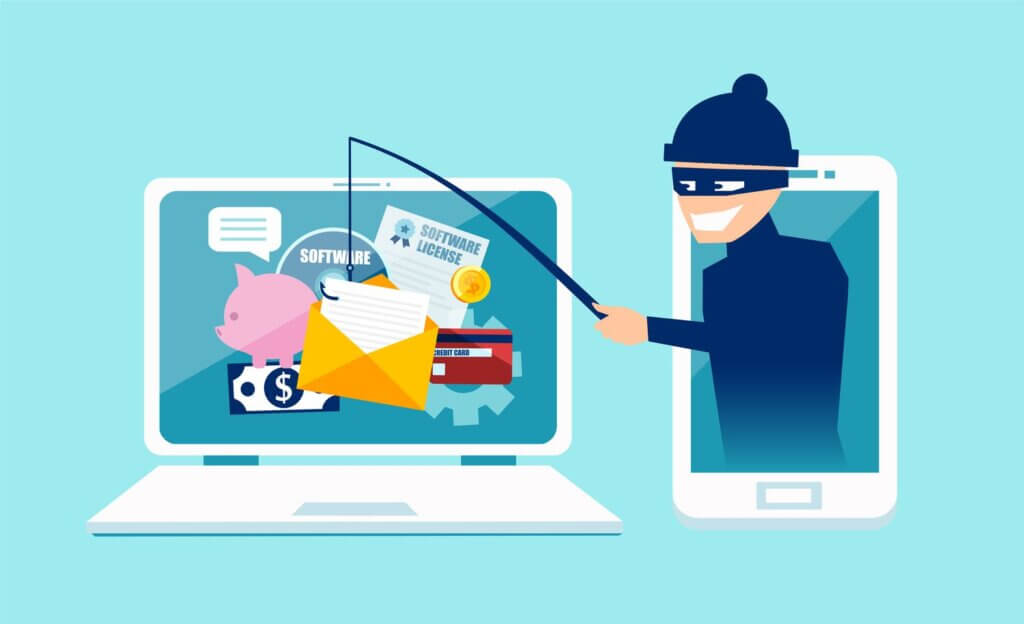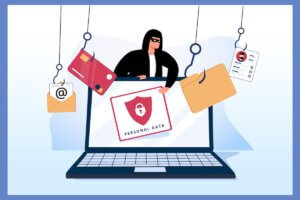
In the fast-paced digital world, we live in, where information is just a click away and instant gratification is the norm, it’s easy to overlook the importance of slowing down, especially when it comes to cybersecurity. In this article, we will explore how taking the time to question, think critically, and seek expert advice can be your greatest defense against cyber threats. Remember, slowing down doesn’t make you less smart; it makes you smarter and more secure.
Questioning the Scams
Hackers employ various tactics to infiltrate our computers and steal our sensitive information. One of their most effective strategies is to manipulate our emotions and prompt us to act rashly. They may use fear, and urgency, or even impersonate trusted entities to trick us into sharing our credentials or wiring money. However, by questioning the legitimacy of these requests, we can protect ourselves.
Whenever you receive a suspicious email or encounter an unexpected request, take a moment to reflect. Ask yourself, “Am I being scammed? Is this real?” Trust your instincts and be cautious. Genuine organizations like your bank, insurance companies, social media platforms, or even your email provider will ALWAYS understand the need to verify their legitimacy and won’t pressure you into making hasty decisions.
The Power of Slowing Down

Slowing down in the face of potential cyber threats provides you with the opportunity to assess the situation objectively. It allows you to gather more information, analyze the risks involved, and make informed decisions. By taking that extra moment, you disrupt the hacker’s momentum, create a barrier that slows them down and opens the possibility for them to make obvious mistakes.
Remember, cybersecurity is not a race. It’s a deliberate and conscious effort to protect your digital assets and personal information. Embrace the power of slowing down and make it a habit to carefully evaluate each digital interaction, especially those that involve sharing sensitive data or making financial transactions.
Seeking Expert Advice:
In the complex landscape of cybersecurity, it’s perfectly acceptable to reach out for help. Asking questions and seeking expert advice does not imply weakness or lack of knowledge. In fact, it demonstrates your commitment to safeguarding your digital well-being.
If you have doubts about the legitimacy of an email, a website, or a request, consult with an IT or cybersecurity professional. Many organizations have dedicated IT departments or external consultants who specialize in cybersecurity. They possess the expertise to guide you through potential threats, validate suspicious emails or links, and offer preventive measures.
Remember, cybersecurity professionals are there to support you. By reaching out to an IT consulting expert, you tap into a valuable resource that can help you make informed decisions and protect yourself effectively.
The next time you receive an email or encounter a suspicious request, take a moment to pause, reflect, and ask yourself important questions. And when in doubt, don’t hesitate to reach out to cybersecurity professionals. Together, we can create a safer digital world.
Password expiration requirements do more harm than good, because these requirements make users select predictable passwords, composed of sequential words and numbers that are closely related to each other. In these cases, the next password can be predicted based on the previous password. Password expiration requirements offer no containment benefits because cybercriminals almost always use credentials as soon as they compromise them.
Reference: Password policy recommendations for Microsoft 365 passwords
Schedule a Cybersecurity Risk Assessment with Orinoco 360 today where we help your business understand and manage the risks associated with cybersecurity threats. It involves evaluating the business’s digital systems, processes, and data to identify vulnerabilities and potential security breaches.
